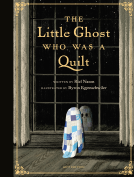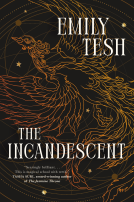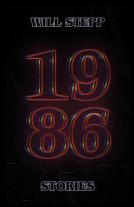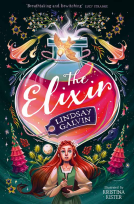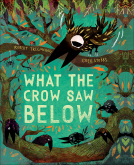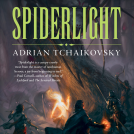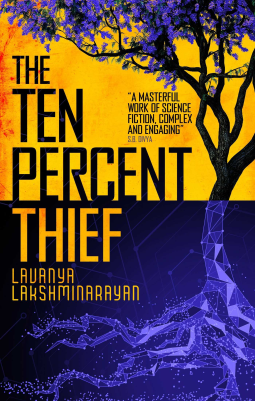
The Ten Percent Thief
Shortlisted for the 2024 Arthur C. Clarke Award!
by Lavanya Lakshminarayan
This title was previously available on NetGalley and is now archived.
Send NetGalley books directly to your Kindle or Kindle app
1
To read on a Kindle or Kindle app, please add kindle@netgalley.com as an approved email address to receive files in your Amazon account. Click here for step-by-step instructions.
2
Also find your Kindle email address within your Amazon account, and enter it here.
Pub Date Mar 28 2023 | Archive Date Apr 16 2023
Rebellion | Solaris
Talking about this book? Use #TheTenPercentThief #NetGalley. More hashtag tips!
Description
Nothing has happened. Not yet, anyway. This is how all things begin.
Welcome to Apex City, formerly Bangalore, where everything is decided by the mathematically perfect Bell Curve.
With the right image, values and opinions, you can ascend to the glittering heights of the Twenty Percent – the Virtual elite – and have the world at your feet. Otherwise you risk falling to the precarious Ten Percent, and deportation to the ranks of the Analogs, with no access to electricity, running water or even humanity.
The system has no flaws. Until the elusive “Ten Percent Thief” steals a single jacaranda seed from the Virtual city and plants a revolution in the barren soil of the Analog world.
Previously published in South Asia only as Analog/Virtual, The Ten Percent Thief is a striking debut by a ferocious new talent.
Advance Praise
“A high velocity anthem sung through the shape of things to come.” – Yudhanjaya Wijeratne, Nebula Award finalist and author of The Inhuman Race
“Masterful” – S.B. Divya, Nebula Award finalist and author of Runtime
“This is fiction playing for the highest stakes – and winning.” – Chandrahas Choudhury, author of Clouds
Available Editions
| EDITION | Other Format |
| ISBN | 9781786188533 |
| PRICE | CA$35.99 (CAD) |
| PAGES | 384 |
Available on NetGalley
Featured Reviews
A scathing look at the near future that is at once both bitingly funny and heartbreakingly sad. I loved it, especially the anthology-like approach that really gave a thorough view of Apex City and it’s inhabitants, with different stories bringing out different aspects of Bell and Analog society that may have been lost in a more traditional telling. Highly recommended.
 Heather B, Reviewer
Heather B, Reviewer
I absolutely loved this book.
Imagine a future world, when following an ecological disaster Bangalore (and other major cities), is divided into two “tribes”.
The Virtuals, who have all the technology at their fingertips, and live in a great city, and the Analogues, who are outsiders, living alongside the city in poverty.
The Virtuals all aspire to reach the top twenty percent who have the most privileges and are constantly monitored to ensure that they are performing to their full potential.
The Analogues are viewed as the rejects from Virtual society, every year the bottom ten percent of Virtuals are sent out of the city.
It might seem that the Virtuals have the better life, while the Analogues are constantly suffering, but through the medium of interconnected short stories, one soon realises that they all have their own pressures and insecurities.
The narrative arc connects all the stories together, and brings a compelling climax.
Thanks to Netgalley and Rebellion Publishing for the opportunity to read this book.
 Veronika N, Reviewer
Veronika N, Reviewer
The Ten Percent Thief by Lavanya Lakshminarayan is a mosaic dystopian sci-fi story.
In this book are multiple points of view, countless characters, and places where we can observe this new and fascinating technological world. The Ten Percent Thief is a unique book, complicated, funny, and horrible at the same moment. Lavanya Lakshminarayan is a genius author.
Thank you NetGalley and Rebellion, Solaris for an eARC!
 Reviewer 1046104
Reviewer 1046104
10/10: ‘The greatest gift of art lies not in its beauty or its horror, but in the manner of its creation. It has the power to bring people together. It urges us to recognise in each the other. It makes us more than Analogues. It makes us human,’
I absolutely loved this story. In a world that’s becoming more and more about tracking what you do, how active you are and so much of our data, in many ways this dystopian future isn’t completely unreasonable.
The story follows multiple viewpoints as the bottom part of society rises up and destroys much of the tech that was used to separate the Virtuals from the Analogues. These viewpoints also include people who are in a precarious position where they were removed from the analogue society but watched to make sure they don’t have any sympathy towards the society they were born into.
 Frank M, Reviewer
Frank M, Reviewer
Thank you to #NetGalley and Simon & Schuster for providing the advance review copy of this novel by Lavanya Lakshminarayan.
Finally, a sci-fi preview to read! This is why I signed up for advance review titles. This novel was very interesting, as it’s a fairly new author who is much-lauded by the sci-fi community, a female (not many female sci-fi authors, let’s be real for second) and it was originally published in India, where the teribble caste system is still in use. And this novel deals with an ‘advanced’ society that uses a caste system, how about that…
Overall I was very much drawn into this story, as it deals with many issues/tropes common in many sci-fi settings, but seeing how a new ‘fresh voice’ author deals with various plotlines and bits of story was very interesting. Highly recommend this one for any sci-fi fans out there.
This review has been posted to Amazon.co.uk, Netgalley.co.uk and Goodreads, as well as my own site Frankthewriter.wordpress.com
I am now a reader reborn. This is the form I want all of my dystopian novels delivered in now. 9/10 times I read this genre I am underwhelmed with the worldbuilding, as it is either not developed or explained on a page in unreasonable detail. The connected short stories avoid this issue and create a coherent, detailed world that I found incredibly interesting. It fit together so neatly I was absolutely ready to accept even the silliest ideas. I think the author had a very good grasp of what they wanted to achieve with each theme and plot point and it transferred beautifully into the writing.
I'd recommend this book to people who are not too much into character-based novels, people who are tired of sci fi and dystopia trying to be serious and triggering at every page, and readers who catch themselves wishing they could see the other pov of the short story they are reading.
 Joshua S, Reviewer
Joshua S, Reviewer
The Ten Percent Thief is a novel that was originally published in India as Analog/Virtual in 2020 and which is now being published in the West by Solaris/Rebellion in March 2023. The novel was hyped up by a few authors I like, and carries a dystopian science fiction premise: what if, in the future, a society/city is organized as per a bell curve, with privileges and technology - particularly technology based upon internet and virtual tech - offered foremost to those higher on the curve - your top 20%ers (or higher) - and almost everything denied to the bottom ten percent. So of course society is organized as per "merit"....but who decides what is meritorious and how is it all enforced is of course the devil in the details.
It's a fascinating book, told in chapters that are each their own vignettes, such that the book tells a number of stories even as it moves overall general story of the city, Apex City, forward from one story to another. And this works tremendously well as it shows the dystopian ways Apex City keeps and tries to keep its citizens both "productive" and socially desirable according to its preconcieved notions and shows how the people cast out of it, the Analogs, struggle to survive, build their own society under its noses, and to resist. Not any part of this story is subtle, but the book's stories cover an incredibly wide scope as it examines society, satirizes attributes of our own society in hilarious but dark ways. The result is really really good, and I highly recommend this.
-----------------------------------Plot Summary-------------------------------------
Apex City is the ideal society, a society that has come through the dark days of the past to be based solely upon merit, with society's benefits going towards those who most deserve them. The top one percent most meritous - as determined by an algorithm judging productivity and social tastes - have access to the best technology and privileges, the remaining members of the top twenty percent have access to most of this tech and privileges, and the next seventy percent - everyone above the bottom 10% - gets to live under the technology of the Sunshield Umbrella, protecting them all from UV radiation and the Earth's harsh climate, all the while they stil get to enjoy most of the benefits of the latest in virtual and cyber technology. They are the Virtuals, and as long as they keep their merit above that of the bottom 10%, they will prosper.
And then there are the bottom ten percent, the Analogs, people who are not productive or valuable to society, who are cast off or left to be born and live outside the Umbrella, in the suffering heat, with no access to virtual technology...and who are forced to make do with things like paper money, old cell phones (if they still work), dangerous water, cassette tapes, and outdated medicine. The Analogs continue to exist thanks to the mercy of civilized society...and to serve as laborers and to be harvested as punishment for their organs or body parts for the use by Virtuals who deserve them more.
Apex City is a truly Just and Wondrous society. And yet despite that, Nayaka, the Analog woman known as the Ten Percent Thief, is about to make her most daring heist of Virtual technology yet - a tree that she plants at the center of Analog society. And alongside that tree will grow a spark, a spark that will give birth to a revolution like no Virtual could ever expect, which will result in a drastic shift in society to come.....
------------------------------------------------------------------------------------ I spend so much time talking about the setup and setting in the plot summary above because The Ten Percent Thief doesn't really have one overarching plotline. The story is split into 20 vignettes/short-stories, taking place on both sides of the Meridian that divides the Virtuals and Analogs, with each story generally showing some new aspect to life in the two versions of society that reflects the system and the injustice that centers it. The overall story does move forward with each story, with characters from one story recurring as more minor characters in later ones, and the events at the heart of each story being affected by events in prior ones, such that the ending of the story is (and this is hardly a surprise so I don't mind "spoiling") the revolution that is sparked by the first chapter and mentioned as major parts of middle and later chapters, but that overall arc of things is honestly less interesting or even the point than how each chapter disects the injustice of a society built like this...a society that can easily be seen as the endpoint of certain human trends or ideas by certain oligarchs or billionaires (and well, how it seems an extension of caste systems like India's is almost certainly not a coincidence).
And these stories cover so so so much in each chapter. So the first covers of course the titular Thief and how she tries her best to be a robin hood like character in stealing from the Virtuals for the sake of the Analogs, which is far easier than it should be. And then you've got a story about how a technology given to a person who has analog roots but wants to rise in Virtual society is a robot that electroshocks him whenever he starts having bad ideas or thoughts, such that his personal tastes match that of the centralized ideal at the end of it (divergence in even those of course is unacceptable). You have the Virtual member of the middle 70% whose productivity drops after their mother dies, leading them to be forced to have a taste of analog life - oh my god having to physically go out and exert oneself to get food and thrive - as a way to ensure he doesn't fall further and be cast out; You have a girl forced to take virtual children on an automated tram tour through Analog society so she can make what she knows is false propaganda about them to ensure they don't become Analog sypathtizers; you have an Analog girl adopted by a Virtual set of parents who is not allowed to use the technology and finds herself shunned and discriminated against as she tries to pass the tests to get full privileges...and to become an accomplished pianist without the musical aids that other virtual kids have...and she has it better by far than other adoptees.
I could list all 20 scenarios here but finding out what is next and what are the next concepts is just as fascinating as reading them, because while each short vignette doesn't last long, and isn't necessarily followed up on (although they are followed up on in less direct ways), they are all done so incredibly well at exploring pretty much every result of this society being put into place. And they're both entertaining and sometimes funny all the while being horrifying at the same time, like the best dystopian satires (a chapter involving two different technologies and ideas, one social and one meant to save the environment, is utterly outrageously funny such that I do not want to spoil it by giving any hint as to its premise). Most books with dystopian settings do not really explore the implications of how these societies must work and how they function, or how they affect various peoples at various levels - The Ten Percent Thief tries to explore all of them and it does so so so well. The way it explores technology and privilege and oppression in the name of merit is all incredibly relatable, applicable and understandable to the modern reader, and the book cuts no corners in exploring and showing how this could be built, how horrifying it can be, how it could come crumbling down...and how it might come rising back up again through no bad intent whatsoever.
Not sure how to say more here without spoiling parts of the experience, so I'll just say: An absolute stunner and a Must Read, and an easy recommend for basically everyone.
 Donde acaba e, Book Trade Professional
Donde acaba e, Book Trade Professional
The Ten Percent Thief by Lavanya Lakshminarayan is a gripping mystery novel that will keep you hooked until the very end. The story revolves around a group of college friends who reunite after several years to participate in a reunion party. However, their celebration is cut short when one of their friends goes missing, and they are forced to come together to solve the mystery of her disappearance.
Lakshminarayan's writing is sharp and suspenseful, drawing the reader into the story with her skilled pacing and vivid descriptions. The plot is well-crafted, with plenty of twists and turns to keep readers guessing until the very end. The characters are also well-developed, each with their own unique personalities and motivations that add depth to the story.
One of the strengths of The Ten Percent Thief is its portrayal of the bonds between friends. The characters' relationships are explored in detail, and the ways in which they support each other through difficult times are heartwarming and relatable. Additionally, the novel touches on important themes such as privilege, corruption, and the impact of technology on society, making it a thought-provoking read.
Overall, The Ten Percent Thief is a well-written and engaging mystery novel that will appeal to fans of the genre. With its strong characters, intricate plot, and thought-provoking themes, it is a book that will stay with you long after you've turned the final page.
My Quick Take: Sci-fi satire in a quick-paced novel that reveals the inherent injustice of the “meritocracy.” A great read!
“They will love him because he is filled with all the things they like to hear. They will love him because he is empty.”
In the near future, climate change has wreaked havoc and traditional world order has broken down. Apex City (previously known as Bangalore) is the centre of an organization that now runs the show on the basis of the Bell Curve. It's a meritocracy that rewards those in the top 20%, takes care of those from 10-70%, and throws away those in the bottom 10% of productivity (The Analogs). And the Analog rebellion is afoot!
This novel is sci-fi satire in a quick-paced novel that reveals the inherent injustice of the “meritocracy.” I really enjoyed this novel. It is:
-A fast-paced examination of the natural, awful consequences of a meritocracy to rule a nation. The theme of social injustice is not subtle, and starts to hit home just over half way through. It's a good reminder of how the notion of meritocracy as just fails us on so many levels.
-A cool look at a sci-fi style that I had to look up. I think it’s best described as “Retro-Futurism,” but science fiction purists may need to correct me. There are VirtuoPods, reflecto-screens and OmniPorts. Be-Mojis surround people’s heads in a pixelated cloud (“Nobody…wants to have to waste any more time on verbal self-expression.”)
-A “mosaic novel,” where we see each chapter from a different character’s POV, but stitched together to create one, linear story. Main characters recurred later as minor characters so the narrative was totally coherent. There isn’t deep character development or world building, but I didn’t miss it here.
The ending really brought the characters together, and was surprisingly humane…the best possibility of what humanity can be, at least for a time. Perhaps overly optimistic, but really lovely. I’d recommend this one!
Thanks to @rebelliondevelopments @solarisbooks and @netgalley for a digital ARC in exchange for my unbiased review.
I haven’t read a 5-star novel in a while, but this one fits the bill. I loved this novel. A beautifully detailed world in which class systems rely upon one’s productivity is our setting. It is broken into a class of the top 20%, the middle 70% and the low 10% (the analogs). People’s technological and social privileges are tied to their class system. So, the more productive you are, the more tools are available to continue said productivity.
Each chapter focuses on one character before moving on to the next character. This decision allowed for several different points of view from a variety of characters. These characters range from the top social media performers to children born in the analog class but adopted into a higher productivity class. And it covers just about everything else in between! Seeing so many viewpoints made the world feel fully realized, despite the book being fairly short for such a task.
All the storylines are eventually tied together seamlessly, and I am still grinning after finishing this book. Several themes, such as reproductive rights, body autonomy, job pressures, bullying, social media, and reliance on technology, are also highlighted throughout. I am so happy I read this book. It was indeed such a pleasure.
I want to thank Netgalley and Rebellion Publishing for an e-ARC of The Ten Percent Thief in exchange for an honest review
 Reviewer 823951
Reviewer 823951
Welcome to Apex City, formerly Bangalore, where everything is decided by the mathematically perfect Bell Curve.
With the right image, values and opinions, you can ascend to the glittering heights of the Twenty Percent – the Virtual elite – and have the world at your feet. Otherwise you risk falling to the precarious Ten Percent, and deportation to the ranks of the Analogs, with no access to electricity, running water or even humanity.
The system has no flaws. Until the elusive “Ten Percent Thief” steals a single jacaranda seed from the Virtual city and plants a revolution in the barren soil of the Analog world.I’m so sad it's over. I could have read another sixty chapters . . . A fantastic read!
This is the book I didn’t know I needed right now. Just absolutely fantastic! I loved every moment. It felt initially like a set of short stories set in the same world, just showing different viewpoints, as each chapter bore no relationship to the previous one, but then everything came together in one absolutely marvellous session.
I was just gripped by this, the imagination was astounding, and quite frankly terrifying. Could this be us in the future?!
Just mind blowing quite frankly.
My thanks to Netgalley and Rebellion for the advance copy in exchange for an honest review
Imagine society is divided into people who use tech and people who don't. And the people who don't are considered the lowest possible class of society. Sounds pretty messed up, right? But yet... you can picture it, can't you? That is the very short gist of this story, but the world and society has so much more to offer!
What I Loved:
►Legit, this is so thought provoking. I mean... we are absolutely headed down this road where every interaction happens online, right? Where you never ever leave your house again? It's terrifying. And so completely plausible.
►Great twists! Yeah the twists were fabulous, I was constantly surprised by the turns the story took.
►The world building was amazing and so creative. I mean, it is clear that the author put a lot into coming up with the nuances of this world. I adored the Bangalore setting, and the attention to detail in terms of the rules of the society was great.
►I enjoyed many of the characters and their stories. My one qualm below is that we didn't get to spend enough time with the ones I did love, and I would have liked more of their stories, but that is because I liked them and wanted more. I thought the author did a great job of showcasing characters from all walks of society, so that part was fabulous.
What I Didn't:
►I wish we had followed the same characters more. Kind of when we were done with a character, we were done with a character and that gave me the sads. I wanted to know what happened more on a personal level, which I didn't really get. I suppose that was intentional, and this is clearly a personal preference.
►I was definitely a little lost at first. Some of the technical stuff went way over my head at first. I still got the general idea, but I kind of would have liked some more description of the technology, so I could have been more immersed into the world.
Bottom Line: All too plausible and definitely thought provoking, The Ten Percent Thief left me with a lot to ponder, in a really good way.
What an absolutely brilliant sci fi novel! This is not my usual genre so I was skeptical but the author absolutely blew me away with their story and writing abilities!
The Ten Percent Thief is centered around the futuristic Apex City, which was built over the remains of present-day Bangalore. In Apex City, advanced technology manages every aspect of typical life, courtesy of The Bell Corporation, the megacorp rulers of the city. The world has been remade according to Bell Corporation guidelines, with a single virtue ruling all others: maximize productivity. Citizens are constantly ranked by their “productivity” score. How well are they doing at work? How popular are they socially? Do they conform to accepted views? Everything and anything is calculated into Productivity. To be Unproductive is the greatest sin.
The world at large is divided into three main groups: The top 20%, who are given exclusive technologies and privileges, the middle 70%, who get most technologies but are constantly in danger of sliding downward, and the bottom 10%—who are stripped of all technology and protective rights, and exiled from the city into the surrounding slums. This is where the title of the book comes from: one of the characters is an infamous thief who belongs to the 10%, but steals from the city. You are either an Analog, one of the unproductive slugs that live outside the boundaries of the city, or a Virtual, one who is productive enough to earn the right to have advanced technology. (This book was previously published exclusively in Southeast Asia under the title of Analog/Virtual).
I found The Ten Percent Thief to be a phenomenal read. It’s a hard-to-define book in all the right ways. It’s set up as a “mosaic novel”, which is basically a series of loosely connected short stories that manage to paint a unified picture by the end of the book. In The Ten Percent Thief, this presents itself as twenty short stories, all from a different perspectives, alternating between an Analog tale and a Virtual one. Most characters star in a chapter and then only make brief appearances throughout the rest of the book, so there is no “main character” here. If anything, the setting itself is the main character.
And it’s the setting that creates the real brilliance here. The dichotomy Lakshminarayan has created is equal parts wonder and terror, and it feels richly detailed. At first, I felt like the novel was equal parts utopian and dystopian—the gorgeous Apex City with its miraculous technology paints a picture of a society who wants for nothing, whereas the slums are harsh and unforgiving, people crammed into tiny living pods that are precariously balanced, scavenging for water and basic resources. But the curtain is quickly pulled back from Apex City and Virtual life. Yes, the citizens could want for nothing, but the relentless meritocracy makes them want for everything. Each Virtual chapter tended to unfold like an episode of Black Mirror, as the citizenry handed their autonomy over more and more to the corporate machine, and each Analog one felt cruel and unforgiving but at least they’re not insane.
The Ten Percent Thief manages to feel fresh in a way that most novels don’t. In many ways, it feels like Lakshminarayan has manage to innovate in a way I haven’t seen for a long time: she made a new dystopia. Not every idea feels entirely unique—I’ll mention again that many of them seem right at home in Black Mirror)—but the overarching structure of it and the satirical foundation of real-world corporate performance buckets and bell-curves makes it into something special.
While reading this, my mind kept returning to a section of Snow Crash by Neal Stephenson. It’s a chapter describing a day at work for YT’s mother, who works at government offices. She’s just received a new memo sent over email, which seems innocuous enough—but it’s fraught with possible risks. She knows that if she reads the email under 15.62 minutes, she’s going to be labeled as a either having a slipshod attitude, or prone to missing important details. If she takes longer than 15.62 minutes, she’s either labeled as being hung up on minor details or intentionally wasting corporate time. If she finishes with exactly 15.62 minutes, she’s an “untrustworthy asswipe”. YT’s mom decides to come in just under 15 minutes, figuring that “efficient but may miss details” is the lesser evil here, and she intentionally re-reads earlier sections so that the computer flags her as a careful re-reader, something she’s been demonstrating for a decade. It’s a horrifying and humorous satire of corporate mindsets, and anyone who has ever been on the wrong side of a surprise performance review can attest to it.
The Ten Percent Thief manages to capture that specific type of satire perfectly. It’s the first book that I’ve ever read that manages to invoke that Snow Crash scene, and it does it again and again, extending it in numerous ways. If you’re someone who felt spoken to by Stephenson from that scene, you should pick up this book immediately.
This wasn’t a perfect read for me. There were a few stories that I thought were on the weaker side, and I wasn’t entirely hooked by the ending. In fact, I came into this review expecting to give it just under five stars. But after writing this and realizing how much I’m gushing over it, and how much I enjoyed my time with it despite the occasional bump: this is a five-star read. The Ten Percent Thief deserves it. This is the first award-worthy read of 2023 for me, and I’d be shocked if it didn’t end up on my Hugo nominating ballot.
5/5 stars
You should read The Ten Percent Thief if:
-You want a fresh take on a dystopian future.
-You want a rebuttal to the relentless emphasis on meritocracy.
-You’re interested in a story told in a collection of loosely connected short stories.
The Ten Percent Thief is an exceptional read, this is set up as a “mosaic novel”, which is a series of connected short stories that brings everything together by the end of the book, each chapter focuses on one character before moving on to the next story and character. The characters are from all walks of society, it helps the world of the book feel more connected even with so many viewpoints. It’s a fantastic book
I received an advance review copy for free, and I am leaving this review voluntarily.
 Librarian 431790
Librarian 431790
Extremely funny and thought provoking, a description of our future that could be very realistic. The author did a good job in developing the world and the characters, I liked the humour.
Recommended.
Many thanks to the publisher for this arc, all opinions are mine
The blurb calls this a mosaic novel, which isn't a bad name for a collection of short stories, all set in the same place, all telling piecemeal aspects of the same story to a conclusion. This feels like a popular form at the moment, its enticing to an author who doesn't have to build long character arcs, and particularly in science fiction, can interrogate different aspects of the world they have created. Here the world is Apex City, ex-Bangalore, run as a meritocracy with the bell curve making all decisions over status and future. The top ten percent rigorously fight for their place as the elite, the next batch jockey into position for them and their offspring to make that leap, and at the bottom the non-citizens grub to survive. Yep, its a status satire that wears its Indianess lightly but shows some of the historical anger over caste inequities in its gleaming computerised future.
The Ten Percent Thief is out to change all of that, though they are a background mythical figure in much of what is going on. And if there is a flaw here, it is that it is much more interested in the Elite slowly falling apart than a revolution in the gutters. Perhaps it is more interesting to show the top echelons how their perfect society, even a society seems to work perfectly for them, is eventually flawed for them too. The stories range from simple takes on work, promotion and influencer culture to some more subtle takes on the qualities of music in a perfected world, and even gaming. The pleasures here are not necessarily in radically new ideas for dystopia in utopian clothes, but rather in the consistency that it is all done well and draws towards a cathartic ending.
Thank you to NetGalley and to the publisher Rebellion/Solaris for the digital ARC, it has not affected my honest review.
It's difficult to describe how I feel about "The Ten Percent Thief" other than it wasn't what I was expecting but I also really enjoyed it. This is a tightly written sci-fi set in a future Bangalore, where everything about life is controlled by digital controls, whether it's your relationships, your skills or your job. Pleasing Bell Tech and being a good citizen is all determined by how much you avoid things that are considered uncivilised. Anyone who isn't part of the top 20% (or the working class 70%) is regarded as an Analog- limited from the virtual world and required to use Walkmans and paper books- and an outsider from popular society. A resistance is growing within the Analog community, aided by an unknown figure called the Ten Percent Thief. She steals electronics and access to the virtual world of the rich with the hope of one day freeing the Analogs from the society that's standing on them.
This is a series of interconnected short stories in one book, covering characters who run the biggest social media giants to a girl born to Analog parents attempting to become a Virtual citizen. It's the story of a woman who has been declared to be a bad citizen, who will have to work like an Analog until she proves she is once again worthy (or face being sent to the "vegetable farm" where Analogs are killed) and small children being indoctrinated via a train ride led by the sister of a former Virtual, desperately seeking one last glance at her only other family. Lastly, it is the interconnected tale of two societies at war with each other and the people who are either benefiting from being Virtual or fighting to be more than just Analog. The idea is so original and I found myself completely unable to put this book down until I finished it. The combination of technology, rebellion and social media works brilliantly here because the writing is so powerful and matter of fact. I'm glad I read this book and would look forward to more set in the world of Apex City in the future.
I received an eARC of The Ten Percent Thief by Lavanya Lakshminarayan through Netgalley, thanks Solaris! This dystopian scifi came out last week, March 28.
The book is described by the publisher as a mosaic novel. It is a collection of vignettes or short stories, with each chapter following a new character. All these stories are set in and around Apex City (former Bangalore) in the far future. The people inside the city, the Virtuals, rely on futuristic technology for their every need, and focus on productivity and image to get ahead on the Bell Curve. Too low on that curve and they risk getting deported. Outside the city, the Analogs try to survive without technology, electricity or running water, and are always in danger of being harvested for organs. But resistance is brewing.
We meet many different characters in this world, in varying positions in these two societies. At first the chapters all seemed unrelated apart from being set in the same world, but events do come together and some characters are seen again as background characters in other chapters.
When I first started reading, I had to put the book down for a while because I was thrown off by the unexpected short story structure. But when I went back in with new expectations I ended up enjoying the book as a whole, and since finishing it I’ve been thinking about it a lot. I really admire the way the book is written and constructed. The worldbuilding is great. Many stories highlight a specific element of virtual society, often a magnified version of something we have today, and the consequences if we would take that thing to the extreme.
Because we switch POV in every chapter, it was harder to feel connected to the characters. There were some that I would have liked to spend more time with (for example the adopted Analog girl trying to became a pianist, or the elderly man in the ‘retirement home’) but also a few that didn’t interest me as much.
All in all it’s such an intriguing concept and story and I recommend it if you like scifi/dystopian books or want to ponder our relationship with technology. Do be aware of the vignette structure before you start reading! 4 stars from me.
Readers who liked this book also liked:
Sostenes B. Lima, LCSW; Erica Lima, LCSW
Health, Mind & Body, Self-Help
